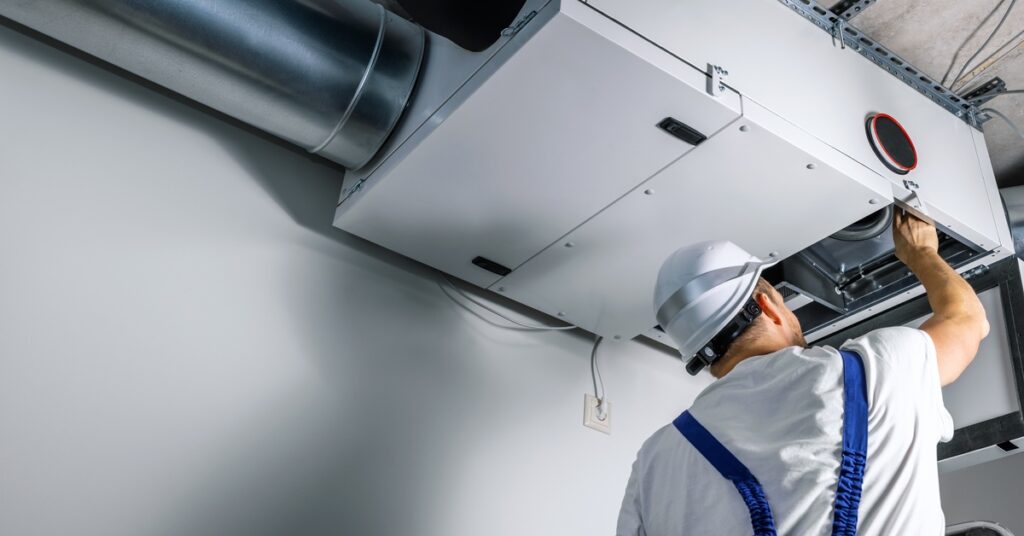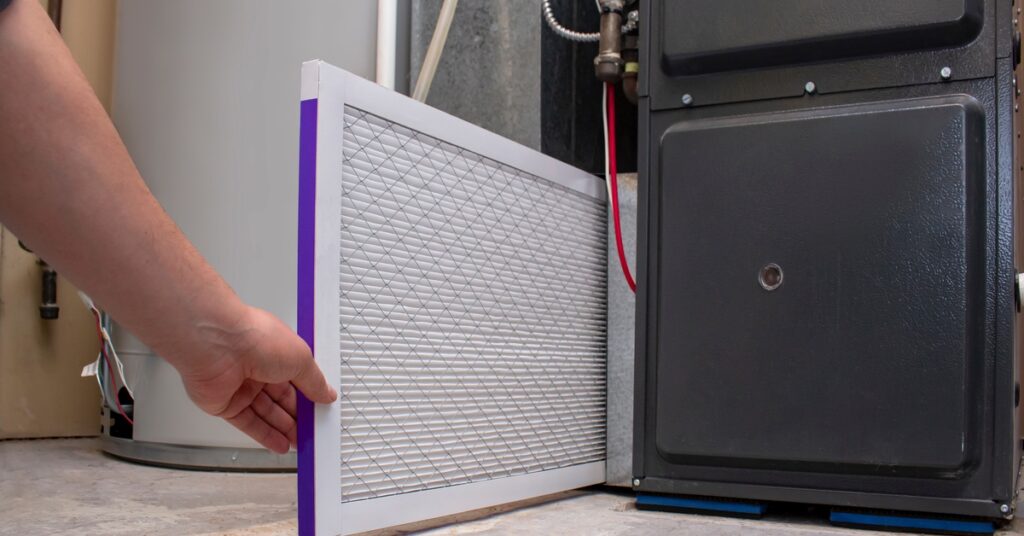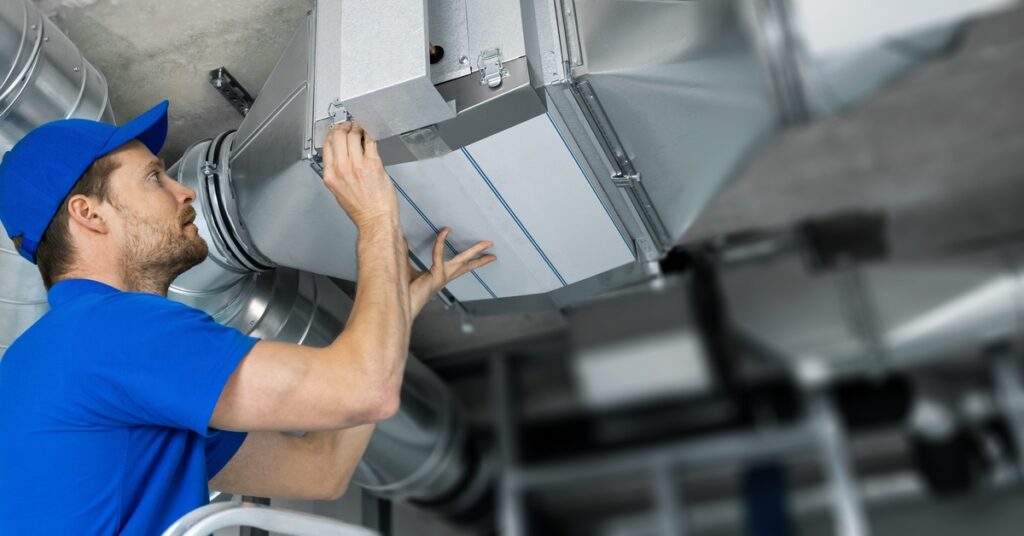Clean air is something we often take for granted, yet it is essential for our health and the proper functioning of our equipment. In many industrial and commercial settings, air filters work around the clock to keep the air pure. These devices play a critical role in maintaining a safe and efficient environment, but they are frequently overlooked when it comes to routine maintenance.
This neglect can lead to a cascade of problems, ranging from immediate health concerns for employees to long-term financial burdens for businesses. Understanding the downfall of neglecting air filter maintenance is the first step toward creating a healthier, more productive, and cost-effective workplace.
The Role of Air Filters
What Are Air Filters and How Do They Work?
An air filter is a simple but ingenious device designed to capture and remove unwanted particles from the air. Think of it as a gatekeeper for your building’s respiratory system. When an HVAC (heating, ventilation, and air conditioning) system pulls in air, it passes through a filter medium. This medium, typically made of pleated paper, spun fiberglass, or other fibrous materials, traps a wide array of airborne contaminants.
What Do They Capture?
These contaminants can include common dust, pollen, and mold spores, as well as more hazardous industrial byproducts like metal shavings, chemical particulates, and other fine debris. The filter stops these particles from circulating through the workspace, preventing employees from inhaling them or allowing them to settle on sensitive equipment. Air filters capture these pollutants, keeping the air clean and preventing debris from clogging your HVAC system.
The Dangers of Neglect
Neglecting air filter maintenance can have far-reaching consequences that impact your business’s health, finances, and operational stability. A dirty, clogged filter cannot perform its job effectively, which sets off a chain reaction of negative outcomes.
Health Risks From Poor Air Quality
When an air filter becomes saturated with contaminants, it loses its ability to capture new particles. Instead, the airflow may force some of the trapped pollutants back into the environment. This recirculation of dust, allergens, and other harmful particulates can lead to a significant decline in indoor air quality.
Employees may begin to experience respiratory issues, allergic reactions, headaches, and a general feeling of unwellness. In an industrial setting, where airborne particles can be particularly hazardous, this poses a serious occupational health risk and can lead to increased sick days and reduced productivity.

Higher Energy Bills
A clogged air filter forces your HVAC system to work much harder to push air through the dense layer of accumulated debris. This increased effort requires more energy, which directly translates to higher utility bills.
The strain on the system is not insignificant. A severely blocked filter can cause a substantial spike in energy consumption as the fans and motors struggle to maintain the desired temperature and airflow. This inefficiency is a completely avoidable operational expense that chips away at your bottom line month after month.
Damage to HVAC Systems
The increased workload caused by a dirty filter does more than just raise your energy costs. It also puts immense strain on the components of your HVAC system. Constant overexertion can lead to overheating motors, fan failures, and other mechanical breakdowns. Over time, this can result in costly repairs or even the premature failure of the entire system.
Replacing a commercial or industrial HVAC unit is a major capital expense that you can often defer for years with simple, routine maintenance. Neglecting a component as small as an air filter can ultimately lead to one of the most expensive equipment failures a facility can face.
Establishing a Maintenance Schedule
One of the most common questions facility managers ask is how often they should change their air filters. The answer is not one-size-fits-all and depends heavily on the specific environment and the type of filter. Creating a consistent schedule is crucial for avoiding the problems associated with neglect.
General Guidelines for Filter Changes
For a typical commercial office setting with relatively clean indoor air, changing filters every 60 to 90 days is a reasonable baseline. However, you need to adjust this frequency based on the operational environment. A building located in a dusty area or near a construction site will require more frequent changes.
Factors for Industrial Settings
In an industrial environment, the schedule needs to be much more aggressive. A manufacturing plant that generates a lot of dust, smoke, or chemical fumes may need to change its filters every 30 days, or even more frequently. Facilities that operate 24/7 will also need to replace filters more often than those with standard business hours, as the systems are running continuously.
The best approach is to start with the manufacturer’s recommendation and then adjust based on visual inspections. If a filter consistently appears heavily soiled at the scheduled replacement time, it is wise to shorten the interval.

Choosing the Right Service
While replacing disposable filters is a straightforward task, many industrial systems use high-efficiency, reusable filters that are a significant investment. In these cases, professional cleaning is often a more cost-effective and environmentally friendly option than outright replacement.
The Value of Professional Cleaning
Professional filter cleaning services use specialized techniques and equipment to thoroughly remove accumulated contaminants without damaging the filter medium. This process can restore a filter to near-original performance levels. You can then use the filter multiple times before you eventually need to replace it. This extends the life of your expensive filters, reduces waste, and ensures your air quality remains high.
What To Look for in a Service Provider
When selecting a filter cleaning service, look for a company with a proven track record in handling industrial-grade filters. They should have a clear process for pickup, cleaning, inspection, and return. A reputable provider will also be able to offer documentation showing that the cleaned filters meet performance standards. This ensures you are not sacrificing air quality for cost savings.
Protect Your Investment and Your People
Regular air filter maintenance is a fundamental aspect of responsible facility management. It directly impacts the health of your employees, the efficiency of your operations, and the longevity of your critical HVAC equipment. The costs associated with neglecting this duty, from higher energy bills to expensive system repairs and potential health issues, far outweigh the minimal effort and expense required for proper upkeep.
For businesses utilizing robust industrial filters, professional cleaning offers a smart, sustainable solution. At Clean Air Filters, we specialize in extending the life of your industrial filters through our advanced cleaning processes. We help you maintain superior air quality while maximizing the return on your filter investment. Contact us today to take advantage of our industrial filter cleaning and protect your employees and facility.

